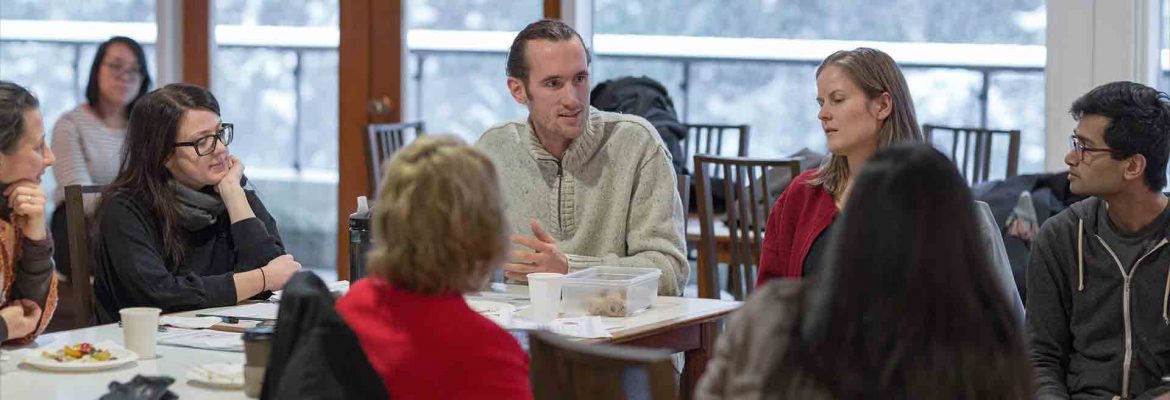“This program provides a venue for people who are looking for long-term, sustained development, who are looking to make teaching a large part of their career, and who are hoping to move into things like educational leadership,” explained Joseph Topornycky, manager of graduate student programs at CTLT and a facilitator of the Certificate Program in Advanced Teaching and Learning (CATL).
CATL is offered to graduate students interested in developing their expertise in teaching and learning. In December 2016, the first cohort of participants graduated from this year and half long program.
The program, originally run from 2005-2010 as a Teaching and Learning Enhancement Fund project, underwent a complete redesign before being reintroduced two years ago.
After extensive feedback, the program team decided to integrate mentorship and teaching opportunities. Participants now work with a mentor over the course of the program, as well as complete a practicum, teaching two one-hour sessions per term for three terms. The program uses blended learning, where participants complete online work prior to each face-to-face meeting, which takes place twice a month. They also create a Scholarship of Teaching and Learning pilot project based on their experiences in their practicum.
The program, which blends theory and practice in each session, covers topics such as pedagogical content knowledge, signature pedagogies, experiential learning, and course design.
“One of the big themes that runs through the program is thinking deeply about what it means to teach in your discipline,” explained Topornycky. “Beyond teaching content, it’s about getting people to think about preparing their students to become practitioners in their discipline.”
According to the program team, many graduate students do not have a lot of opportunities to think about teaching. Those that enter teaching careers afterwards may not have the necessary skills.
When reflecting on their experiences, participants noted how enlightening the program was in making them challenge their assumptions and critically and thoughtfully reflect on teaching.
One program participant noted that CATL was helpful in developing an advanced knowledge of teaching and understanding of their discipline.
“[From] that base knowledge, [you] can build and enrich [your] discipline…where [you] don’t have to go through the learning curves of what it means to teach,” he explained. “[You] can think about the deeper questions about what aspect of the discipline is important and what the best way is to translate that knowledge for the new generation.”
The nine graduate students that completed the first cohort came from a variety of fields, including law, pharmaceutical science, nursing, and education. Many participants noted that the program helped them see how their discipline can interact with other disciplines, and what methods can be borrowed from other disciplines to improve their teaching.
“It really helps them become conscious of their discipline—of the strengths of their discipline and some of the limitations of their discipline. That helps them think about how to reach students who may, for one reason or another, feel shut out or excluded from their discipline,” Topornycky said, adding that this insight can help participants reach students coming from different contexts or backgrounds.
The program is currently working with its second cohort of graduate students. The program team hopes that by completing the certificate program, all participants will develop a greater capacity to share their knowledge and perspectives. Participants in STEM disciplines who complete the program also qualify to become CIRTL Scholars.
Applications for the next offering of CATL will open in spring 2017.

